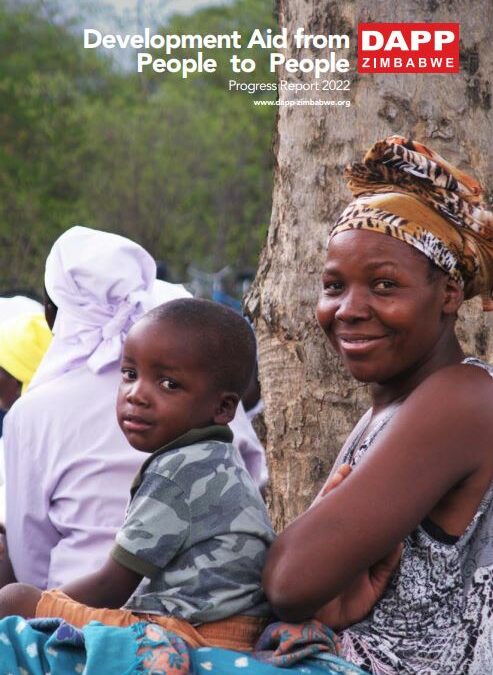
by ellen | May 16, 2023 | Blog, News
We are excited and proud to release our Development Aid from People to People in Zimbabwe Progress Report 2022.
The report provides an insight into the work of DAPP Zimbabwe over the past year, including our shared commitment to protect the planet, build communities and support people by connecting them with others, unleashing their potential for positive change and action.
We take this opportunity to extend a big THANK YOU to all our partners, for your support.
DAPP Zimbabwe Annual Report 2022
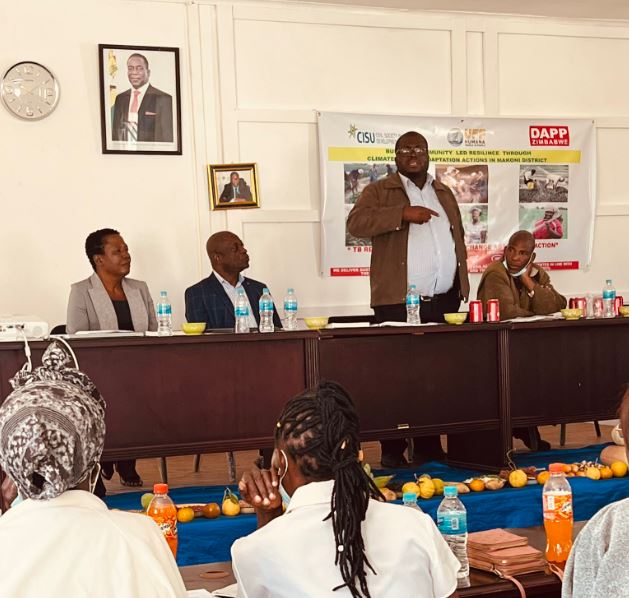
by ellen | May 12, 2023 | Blog, News
DAPP Zimbabwe has launched the Building Community-led Resilience through Climate Change Adaptation Actions in Makoni District, funded by CISU through UFF-Humana. The intervention aims to build resilience among 200 smallholder farmers particularly women and those affected with TB and /or HIV from wards 12 and 16 in Makoni District.
Speaking during the official launch at Makoni Rural District town hall, DAPP Zimbabwe Country Director Luckson Soda said the new actions build on the current TC TB project and will increase household incomes, food and nutrition security.
“This project will promote the adoption of climate-smart agricultural techniques through asset creation of gardens, installation of solar powered borehole and drip irrigation technology and rearing of small livestock production among the 200 smallholder farmers”.
Luckson Soda added that the initiatives align with the National Development Strategy 1, which mainstreams climate change at community level as well as contributes towards SDG 13-on climate action.
Speaking at the same occasion, DAPP Zimbabwe Programmes Director Ruth Makumbe stated that DAPP’s interventions are possible because the organization works with all local leaders and community members.
“We identify ourselves with people, live with the people, together we identify problems and become part of the solution together. We have dedicated and devoted cadres represented here as a People to People organization, ready to work with communities and their leadership, government, and other key stakeholders to transform people’s lives”.
Still, at the same event, guest of honor Makoni District Development Coordinator (DDC) Edwin Mashindi applauded DAPP Zimbabwe for complementing the government’s efforts in attaining Vision 2030 on food and nutrition security and improved household economies.
“I am happy to see a project that we worked together from proposal development to today coming to fruition. These actions anchor on agriculture which is a key driver of Zimbabwe’s Vision 2030 of building resilience to climate shocks by smallholder farmers. As the DDC we support initiatives that align with the National Development Strategy 1(NDS1) which mainstream climate change at community level and these actions are one of them”.
Given the platform to speak during the launch, the beneficiaries welcomed the new actions and promised to work together with DAPP, relevant government departments, public and private sectors for improved livelihoods.

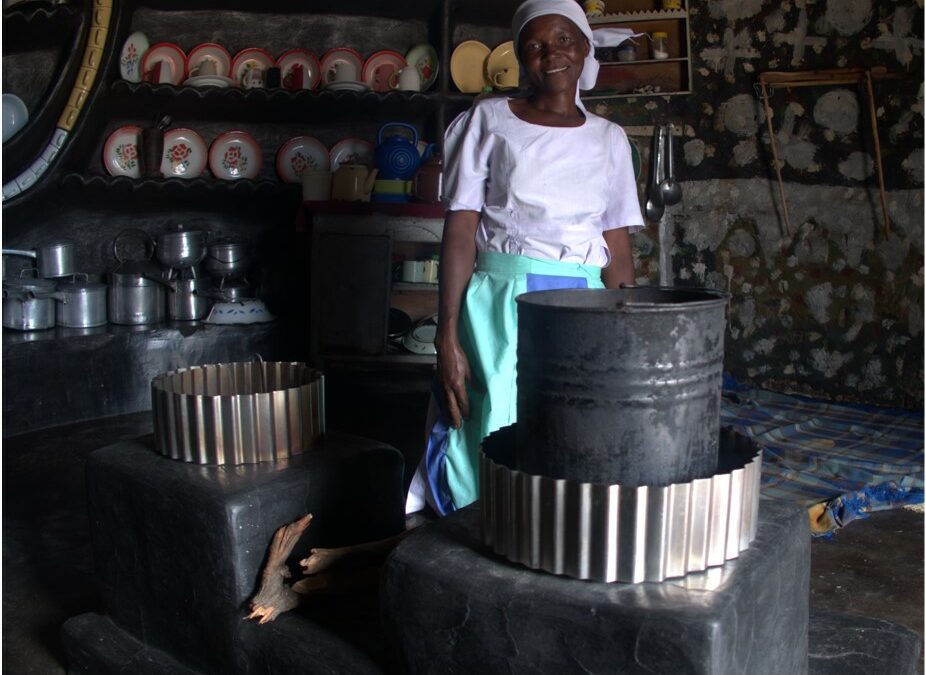
by ellen | May 3, 2023 | Blog, News
Development Aid from People to people (DAPP) has launched the Cook Stoves Project in Chivi District targeting 30 000 households .The project is aimed at improving people’s lives while making a big contribution to fighting climate change.
In many rural homes women cook for their families using open fires which are unhealthy, dangerous, and a major contributor to carbon emissions worldwide. DAPP Country Representative Luckson Soda says “As DAPP Zimbabwe we are promoting the adoption, access and use of a new cleaner, healthier and more efficient COOKSTOVE to improve the lives of the people, in particular women and children” He added that the program provides cookstoves components at no cost to households and recipients are trained on how to install, maintain and repair the stoves to ensure longevity of use and adoption. ”
The project will have a significant impact for thousands of households in Chivi who will require less firewood to cook and reduced the exposure to smoke and harmful greenhouse gases. Women using a clean cookstove regain their health and enhance their productivity in their communities.
The project has significant sustainable development impact across climate, health, social and economic empowerment.
DAPP Zimbabwe is also implementing similar Cookstove projects in Mutasa, Chimanimani and Makoni Districts of Manicaland province.
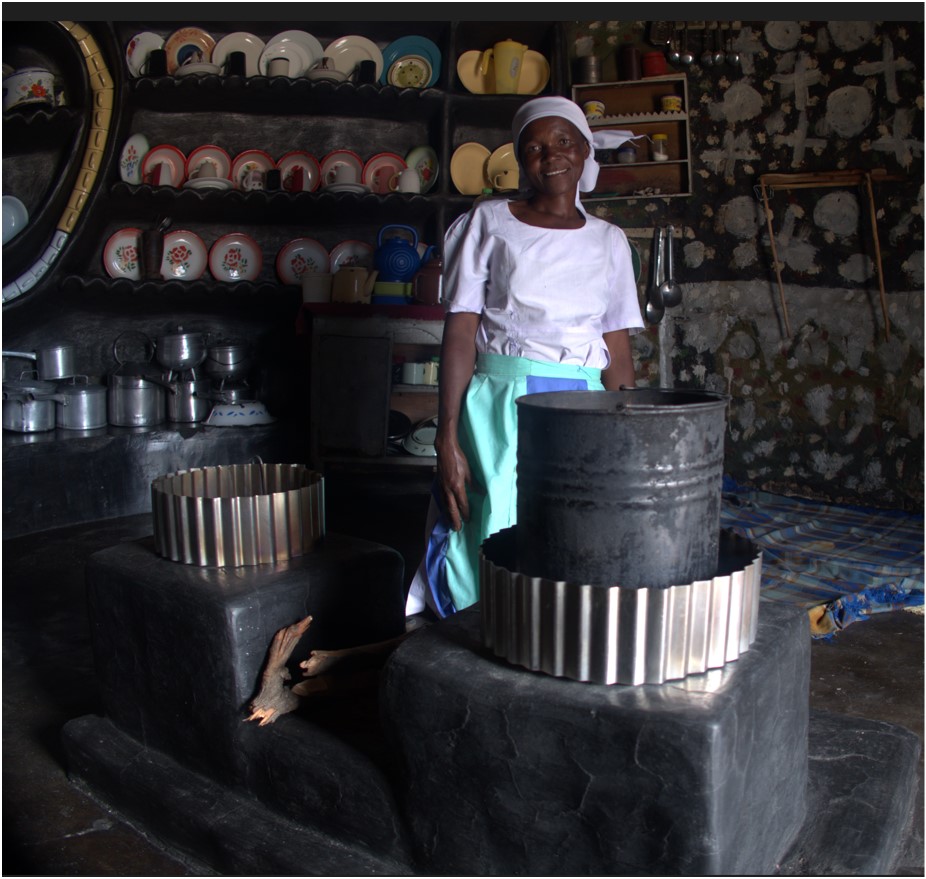
Cookstoves start in Chivi district

by ellen | Feb 23, 2023 | Blog, News
My name is Primrose Nyabadza and I am 30 years old. I am married with two children. My firstborn is a girl doing grade six and my second son is attending pre-school. I live in ward 19 Mvere village in Mutasa Central. My husband and I are self-employed.
My family relied heavily on farming for consumption and income. However, due to uneven weather patterns, in some seasons we would fail to have enough food to last us until the next farming season. As a family, we always wanted to start a family business but poor resources and capital limited us.
In 2020, the DAPP team then introduced us to mushroom production. My husband and I embraced the idea and raised small capital to kick start the project. Under proper guidance from DAPP that same year, my family started growing the grey oyster mushroom.
Teachings from DAPP guided us to first plant 8 kgs of mushrooms and my first harvest was 23kgs of mushrooms after 23 days. I grew my mushroom 3 days apart so that when its harvest time, I was able to harvest at least 3 times a week.
In total weekly, I harvest over 45kgs which I sell to local people and supermarkets. Some people purchase mushrooms at my house at a wholesale price of 0.50USD cents and a retail price of 1 USD per 200 grams.
The demand for mushrooms in my community is very high such that sometimes I fail to meet the demands due to a shortage of inputs. The highest amount I got from my mushroom business after three months was 500 USD.
The mushroom business helped us to bounce back on our feet after our house caught fire and everything in it was burnt to ashes. Using our profits we managed to buy all necessary property, blankets, clothes and food. Currently, I can pay my children’s school fees, improve food security and general upkeep at my house all because of the mushroom business.
Using some of my profits from mushroom production, I managed to join a fruit tree nursery group business of six female members who are my neighbours but the project is still in the initial stages. I am the group leader. We have varieties of fruit tree nurseries such as avocados, peaches, apples, pears and mangoes.
We hope to reach the expected 40 000 trees target we set and start selling the nurseries. Each tree will be priced at one dollar which will profit me and fellow group members. As the leader of the group, I have already started looking for more markets for our tree nurseries using the link from my mushroom business.
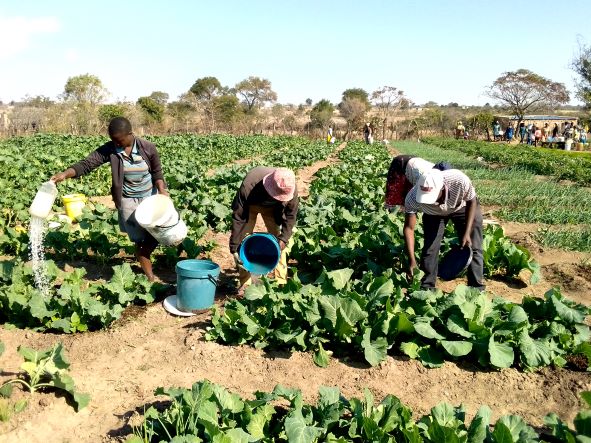
by ellen | Feb 10, 2023 | Blog, News
With support from Humana Spain, DAPP Zimbabwe is currently implementing the Humanitarian Action Post-Disaster Recovery and Disaster Risk Reduction in Malawi and Zimbabwe project in wards 6 and 9 of Chimanimani district in Manicaland Province.
The project works to improve the resilience of 800 families in communities affected by floods and drought by supporting socioeconomic recovery activities so that the affected families can get back on their feet with a renewed capacity to meet their basic needs.
Families who are mainly small-scale farmers are supported to organize themselves in community-based structures known as Farmer’s Clubs where they learn and share ideas on sustainable conservation farming, small livestock production, and water management techniques. Together they learn the basics of entrepreneurship, financial literacy, value chain development, and access to markets to enhance livelihood sustainability.








